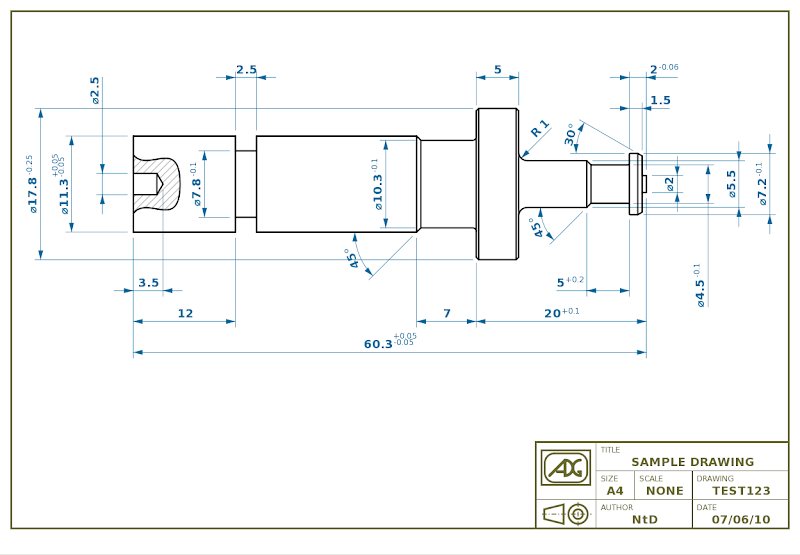The ADG library (Automatic Drawing Generation) is a set of functions focused on automating the drawing of mechanical parts.
When different parts share a similar shape, a custom application can be much more effective than the traditional way of manually drawing every part with a CAD. In many factories, typically where mass production is involved, this is quite common. Valves, nozzles, elements, nuts, bolts, washers, needles and a lot of other components fall into this category.

You can get similar results by using a parametric CAD, but a custom application provides the following benefits:
- more extensible
you are not tied to the user interface and you are not forced to interact with the user, so you can create headless services; - more customizable
if you have to create an application from the ground up, so it can be whatever you want and using the technology stack you prefer; - not so bloated as a parametric CAD
this honestly depends on what you have planned but, as a rule of thumb, an application based on the ADG doesn't need to be that complex; - can be easily connected to a database
the model-view separation greatly improves the connectivity; - the drawings can be generated on the fly
as already mentioned, the canvas does not enforce user interaction: this feature can be leveraged by a dynamic site or a web-based application, where the drawing can be generated on request.
Although the ADG project has been developed in C using an object-oriented approach, the applications based on it are expected to be developed using higher-level languages, especially garbage-collected ones. See the language bindings section for more details.
Its components (such as model handling, user interface support and drawing customization) are fully decoupled, making possible for instance to build the project on a headless server for web applications support. Check out the technical details page for further information.
The project is cross-platform. It is known to build on various flavour of GNU/Linux systems (ArchLinux, Slackware and Ubuntu), FreeBSD, OpenSolaris and Windows XP (either by cross-compiling from GNU/Linux systems or by natively building it on a MinGW environment).